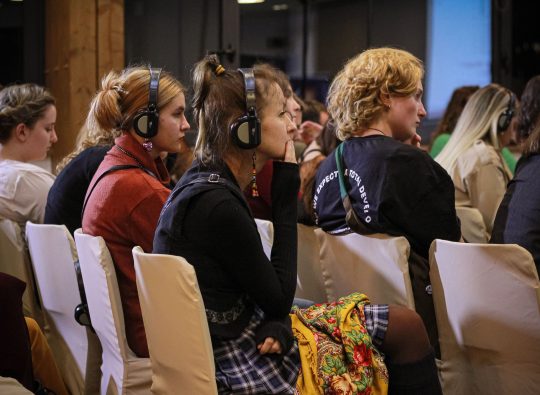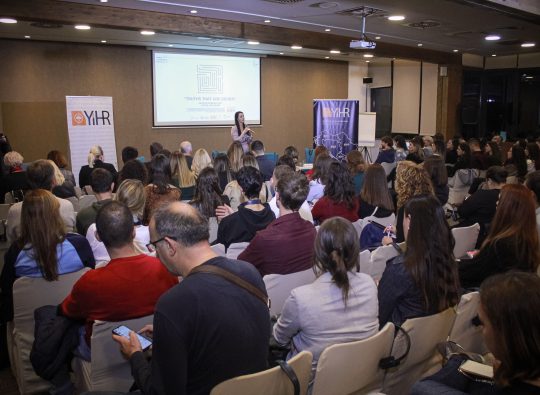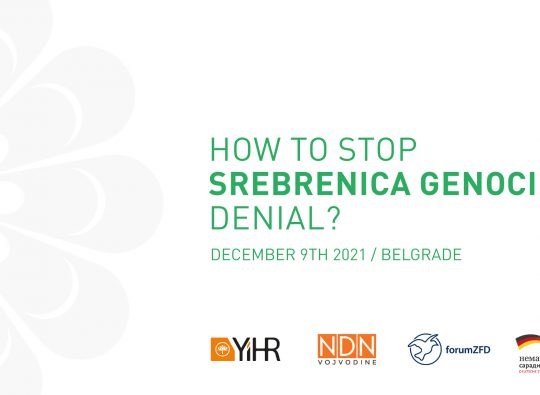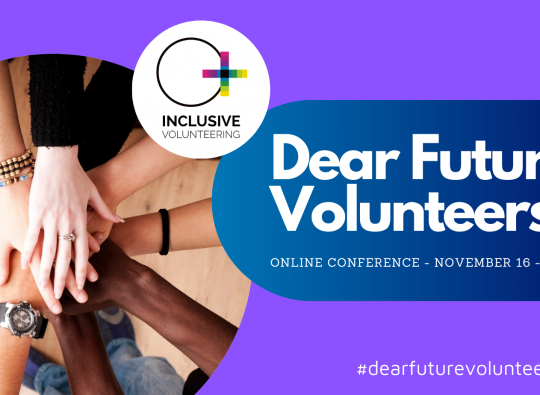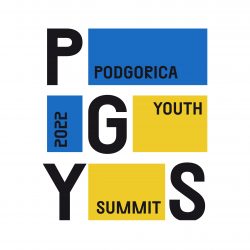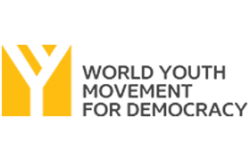Program director Sofija Todokrović addressed the participants of the conference and presented the results of the “That the truth is no longer late” campaign, which mapped murals and graffiti of the convicted war criminal Ratko Mladić. Todorović shared that more than 120 citizens sent photos of murals and graffiti with the likeness of Ratko Mladić, and that 60% of them are in Belgrade, and about 20% of the murals are on public institutions in Serbia. In addition, Todorović noted that peace is only possible if all countries in the region face their war past.
“We believe peace in the region is impossible until every country in the region gives up nationalism and starts respecting the victims. Now is the moment for our togetherness to erase our differences,” Todorović said.
After that, the conference continued with the panel “Images in our heads and on the walls”, where the panelists spoke about the role of art and media in (de)constructioning nationalist narratives and confronting the violent past.
Historian at the cultural studies department of the University of Rijeka Vjeran Pavlaković (Croatia), peace and civic activist Aida Ćorović (Serbia), screenwriter and producer Ines Tanović (Bosnia and Herzegovina), as well as one of the founders of DokuFest Veton Nurkollari (Kosovo) spoke on the panel. The moderator of the conversation was Igor Besermenji, a journalist from N1.
The panelists’ offered different perspectives that, united, provide a complete picture of the situation in the region and how young people may be more conservative than their parents.
“I don’t think it’s anything unexpected. Considering that we have the same people in power in Serbia for the last 10 years who made the war, who are guilty of these crimes. It was fully expected that the revitalization would be carried out in the 90s, and what is happening with the mural of Ratko Mladić is an indirect recognition of these authorities who are defending the depiction of Ratko Mladić, which was financed by those guys who defended that “mural,” to some extent the way those authorities said that we stand behind war crimes, that we stand behind Ratko Mladić. In such an atmosphere, my dears, could we have expected anything else?”, said Ćorović.
Vjeran Pavlaković, a historian at the Department of Cultural Studies at the University of Rijeka, said that the murals we see on the walls are the result of dominant narratives that exist in the region.
“The political elites in all the countries of the former Yugoslavia are still the same as they were during the war (Serbia, Croatia, BiH), in that sense what we see on the walls are the dominant political and historical narratives of what happened in the region.”- emphasized Pavlaković.
The founder of DokuFest, Veton Nurkollari, spoke about the importance of media freedom, as well as the role of professors to educate young people so that they think critically, and not take what they are told for granted.
“How did we get to the situation we are in today? Look at the education system. I think that these young people shouldn’t be blamed too much, that’s what they got, that’s what they were served, and that’s what they learned in school. The truth for me is not the truth for them, the truth is what suffers in these situations when untruths or half-truths are served,” said Nurkollari.
Screenwriter and producer Ines Tanović emphasized that the problem today is we do not have a consensus about what happened in the wars of the nineties.
“We don’t have a consensus on what is true and what happened in the wars of the nineties, and that is the essence and the beginning of all problems in all our societies,” concluded Tanović.
This activity has been supported by BCSDN and financed by the Swedish International Development Cooperation Agency, Sida. Responsibility for the content rests entirely with the creator. Sida does not necessarily share the expressed views and interpretations.

